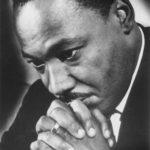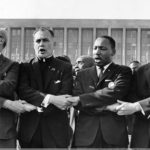I’m thrilled to have John O’Keefe as our featured guest writer. John is at the tail end of finishing his dissertation, and is writing a book about vision for Christian ministry and leadership in this century. Some exciting times are just around the corner, and I do believe John has some valuable insights to share. Below is a brief bio, and then his post. It’s sure to whet your appetite for what’s to come. Feel free to ask him more about it, contribute your thoughts, and give John a shout out.
Bio:
John is a doctoral candidate at George Fox Seminary, and has been called a “creative futurist ,” by people other than his mom. For 15 years has been an active voice in the emerging/evolving conversation regarding Christian Spirituality. As Senior Pastor and Church Planter with 15 years experience, he is leader, and a dynamic, honest, up front speaker and consultant.
Besides being the founder of ginkworld, John has written for a number of other ezines: the Ooze , dtour , Next-Wave , and others. John has also written for homiletics and other publications. He likes to take pictures of himself driving, such as you see here.

The Conceptual Church: A Vision
-by John O’Keefe
When I was asked by Lisa to be a guest blogger, I was excited. I was excited because in her request she told me I could share with you what was on my heart and for me, as of late, that has been the idea of leadership in the emerging church. First, I want to say that I am beyond the term “emerging.” Not because I see it as a “bad” word, but because I am beyond thinking in terms of “emerging” and think more in terms of being a conceptual church – let me explain.
When we think in terms of “emerging” I think in terms of “coming from.” That is to say, a flower emerges from the plant. While the flower “emerges” it is still very much the same as the plant it emerged from, with minor variations in color and size. The flower will go to seed and produce a plant pretty much the same as the plant it comes from – the cycle continues; even though they emerge they carry the DNA to the next generations. So I have found with the leadership concepts of the emerging church. Those in leadership are products of what I call the “industrial church” (what many are still calling the modern church). Because of this, many emerging churches are simply younger offspring of the industrial church model. While the church may look different, at its core leadership there is very little difference. So, what I am calling for is something very different, and something very right brained – something I am calling a “conceptual church” (a church for the 21st Century). For the conceptual church we need to develop a “conceptual leader” – a shift from the left brained industrial church to the right brained conceptual church.
I am in the process of writing a book for my doctoral dissertation based on that very reality. The idea to reach out to a conceptual people we need to develop conceptual churches lead by conceptual leaders. Right brain thinkers who are creative, empathic, dynamic, and understanding people who see the world with new eyes, and lead in new (yet very ancient) ways. Without going too deep into the book (not willing to give away the surprise) I will share that one of the keys to understanding a conceptual leader is to see people as people – in the industrial church people are seen as resources and assets and are placed in the “expendable” category when it benefits the organization. Yet, in a conceptual church people are seen as people and add to the diversity of the of a community of faith.
My prayer is that the book will be ready by the middle of 2010 – let me know what you think.






